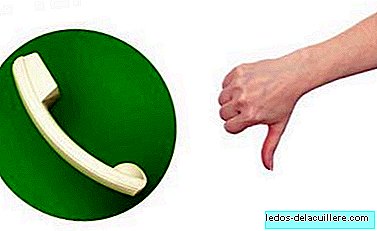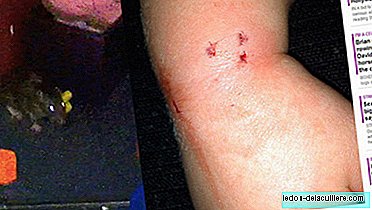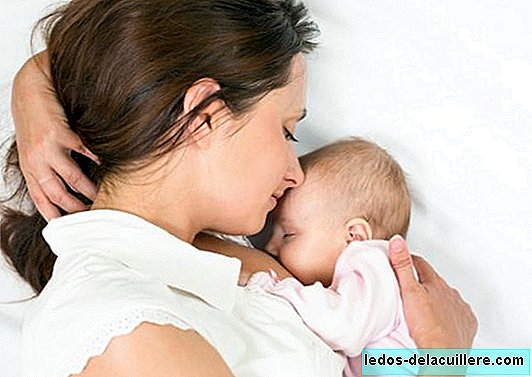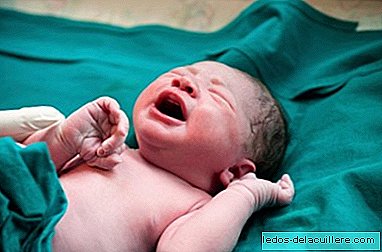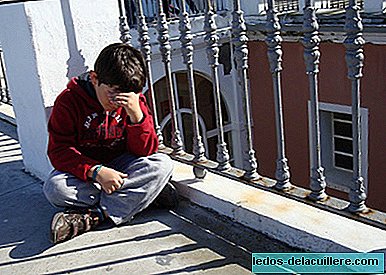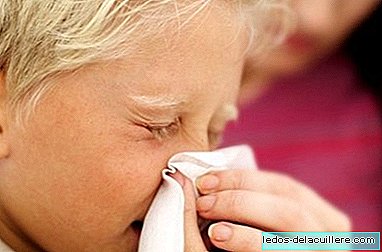
Cases of allergy in children are becoming more frequent, and, although the causes are yet to be determined, it seems that there are certain processes and actions that are related to lower rates. Let's review how we can clean the house in case of some allergies and we will learn to detect them and prevent them as much as possible.
What is an allergy?
An allergy is a reaction of the body to a substance that it considers toxic, strange or harmful and can occur in several ways: with skin reactions (skin rashes, hives, redness or pimples), such as respiratory reactions (cough, itchy nose and mucus) and with digestive reactions (stomach ache, vomiting, nauseous states and diarrhea).
The allergic reactions more serious can be very dangerous since, in some cases, anaphylactic shock occurs, a problem that must be recognized because it requires immediate emergency visits. The itching begins to spread rapidly and the inflammation causes respiratory problems to occur, and, if left unchecked, can lead to a picture of cardiovascular system failure.
Given the gravity of the alergies If we suspect that our child has one, it is convenient to go to the pediatrician and perform the necessary studies.
What can children be allergic to?
Since allergy is a reaction of the immune system to an initially harmless substance there is nothing to which you cannot be allergic. Children usually have more allergies than adults and therefore, if we observe reactions such as those described above it would be convenient to start monitoring when they occur and consult a doctor.
The substances to which is usually allergic They are: the pollen of some plants, dust mites, mold spores, animal hair, food and insect bites. A person can be allergic to only one specific thing: cat hair, wasp sting or peanuts, so you have to identify the allergen and avoid it.
Food allergies are a specific issue whose prevention is not completely possible. However, exclusive breastfeeding during the first six months of life (exclusively means that nothing else should be given) and the gradual introduction of complementary feeding, respecting the recommended age for each food and monitoring any reactions are key points for prevention
How to clean to prevent allergic reactions?
The most frequent allergies to non-food or medicated products are pollen, animal hair, dust mites. And the way to prevent children from suffering from this is to maintain proper but not excessive hygiene and, if there is a problem, avoid contact with these substances as much as possible.
Let's see if we can have some cleaning and hygiene standards that help us prevent allergies or allergic reactions.
There are indications that an excess of hygiene makes babies less protected and can contribute to weakening the immune system, not letting them test their reactions and causing that then, something harmless is detected as very dangerous, triggering an allergy.
Considering that it is estimated that allergies in children have tripled in the last 30 years, we should consider what are the causes: excessive medication, feeding with too many chemicals, environmental pollution and excessive cleaning and hygiene are some of the usual to mention.
That is, keeping the house clean but not obsessed with sterilization and hygiene can, in the end, be beneficial for the child's immune system.
And if you have a declared allergy?
The home cleaning and maintenance It will depend on the type of allergy we detect in the child. In general it is convenient to vacuum more than sweep, not to use stuffed animals or to wash and expose them to the sun, scrub with non-irritating products and ventilate frequently by shaking blankets and comforters.
If the allergy is to pollen It is appropriate to identify the time when this plant is most active and consult the concentration indices that are published. The house should be ventilated, but not in the hours of maximum concentration (first morning and sunset), going out with sunglasses to protect the eyes, showering and changing clothes when returning from the street and not tending outdoors. If possible, avoid outdoor activities during peak hours and eliminate other irritants from the environment (tobacco, sprays, air fresheners or insecticides).
If the allergy is to mites It is important to have a vacuum cleaner with a specific filter and pass it frequently and clean the dust carefully. In addition, curtains, carpets, carpets and upholstery should be avoided at home, especially in the bedroom. The bedding must be changed frequently and must be made of material that can be washed at 60º. The mattresses are better than latex.
The question of pet allergy is different Well, there is an emotional relationship with the allergen. The animals to which allergies are usually detected are cats, dogs, horses, hasmters and rabbits, that is, those most frequently in contact with children. The allergy, rather than the animal, is to their hair and the particles of skin they leave.
In principle, it seems that having pets is good for the immune system and even prevents allergies and eczema even from pregnancy, therefore, pets are beneficial in this regard.
But if the allergy is declared, some provisions must be taken. Each family will have to face this situation of that a child is allergic to an animal differently, depending on the possibilities of the house and the intensity of the child's reaction, but it must be borne in mind that, precisely, allergies are unpredictable and continued allergen exposure is not good for the patient. In some cases it may be necessary to find a new home for the animal.
Once we detect the allergy and we decided to continue living with the pet, you have to be very careful: brush the animal, wash it, do not let it get on the beds, try not to enter the bedrooms and rooms where the child is usually and vacuum every day.
We hope these tips help you plan the hygiene and cleaning of your homes to prevent allergies or soften your symptoms if they have already been declared and to know better the causes and symptoms they produce.



